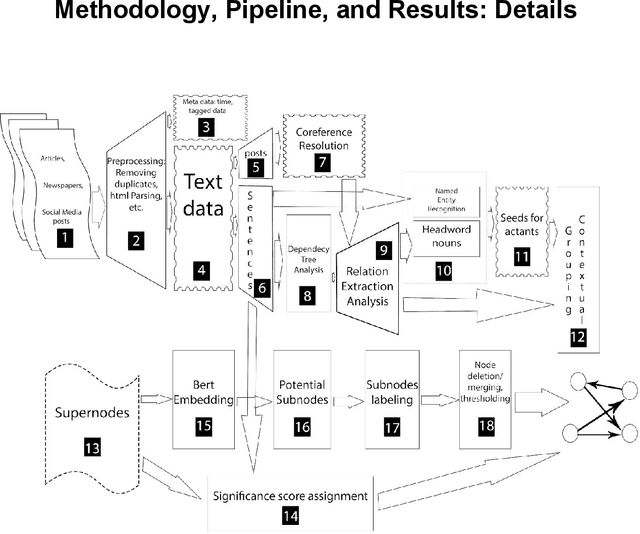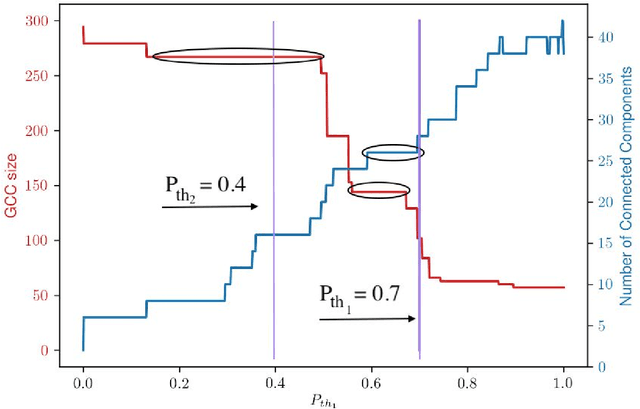An automated pipeline for the discovery of conspiracy and conspiracy theory narrative frameworks: Bridgegate, Pizzagate and storytelling on the web
Paper and Code
Aug 23, 2020

Although a great deal of attention has been paid to how conspiracy theories circulate on social media and their factual counterpart conspiracies, there has been little computational work done on describing their narrative structures. We present an automated pipeline for the discovery and description of the generative narrative frameworks of conspiracy theories on social media, and actual conspiracies reported in the news media. We base this work on two separate repositories of posts and news articles describing the well-known conspiracy theory Pizzagate from 2016, and the New Jersey conspiracy Bridgegate from 2013. We formulate a graphical generative machine learning model where nodes represent actors/actants, and multi-edges and self-loops among nodes capture context-specific relationships. Posts and news items are viewed as samples of subgraphs of the hidden narrative network. The problem of reconstructing the underlying structure is posed as a latent model estimation problem. We automatically extract and aggregate the actants and their relationships from the posts and articles. We capture context specific actants and interactant relationships by developing a system of supernodes and subnodes. We use these to construct a network, which constitutes the underlying narrative framework. We show how the Pizzagate framework relies on the conspiracy theorists' interpretation of "hidden knowledge" to link otherwise unlinked domains of human interaction, and hypothesize that this multi-domain focus is an important feature of conspiracy theories. While Pizzagate relies on the alignment of multiple domains, Bridgegate remains firmly rooted in the single domain of New Jersey politics. We hypothesize that the narrative framework of a conspiracy theory might stabilize quickly in contrast to the narrative framework of an actual one, which may develop more slowly as revelations come to light.
 Add to Chrome
Add to Chrome Add to Firefox
Add to Firefox Add to Edge
Add to Edge